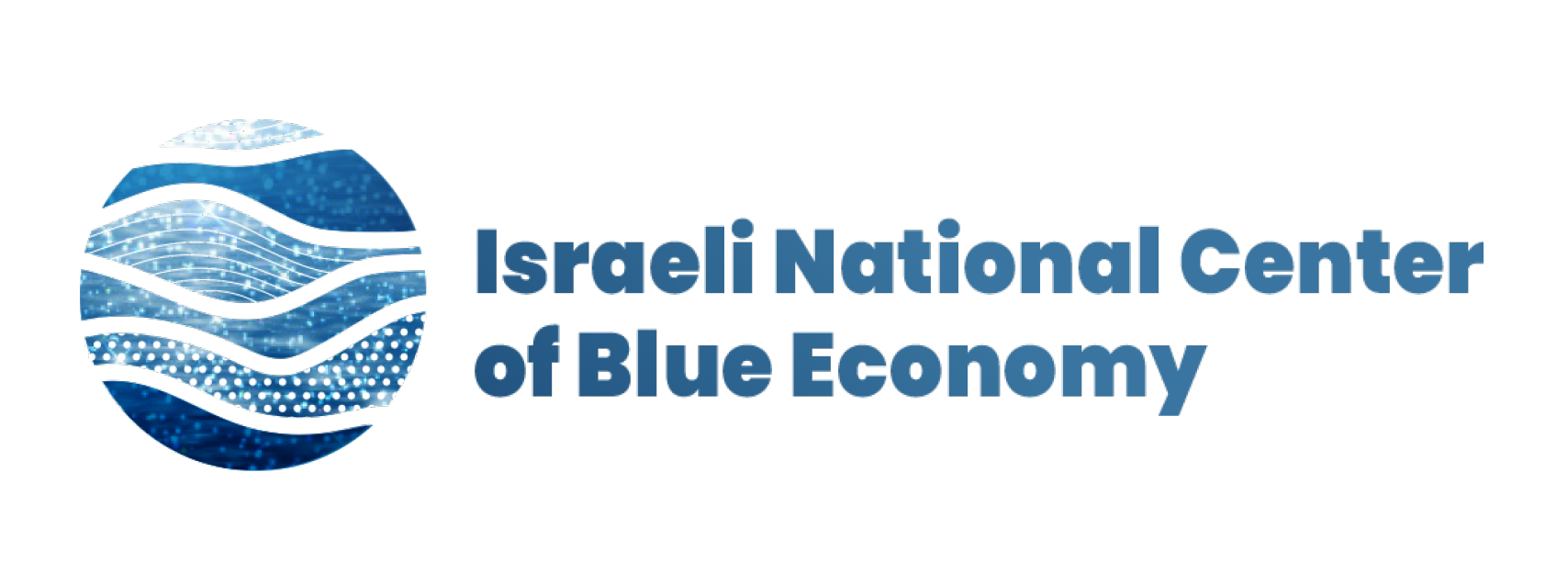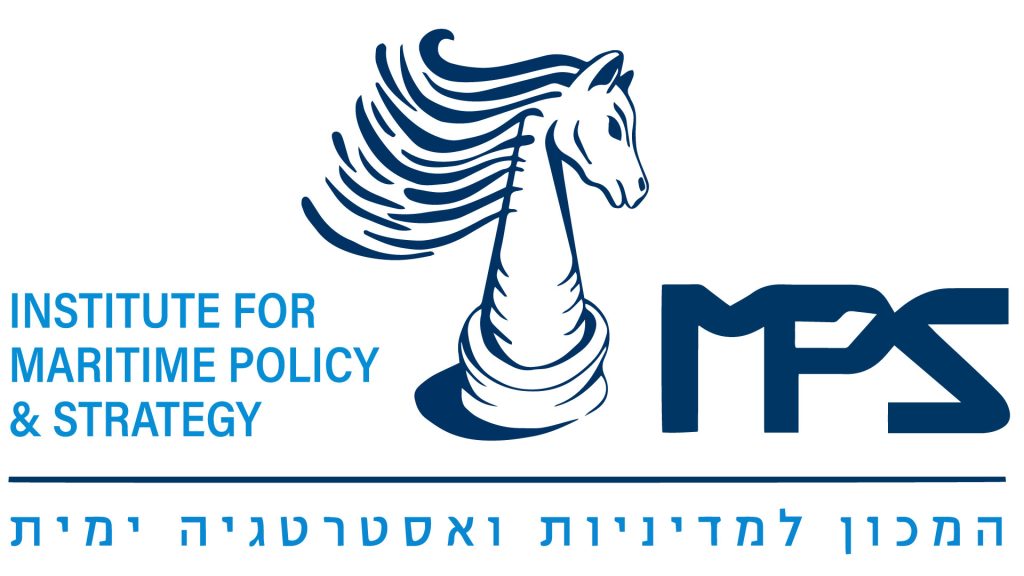blue economy
sectors
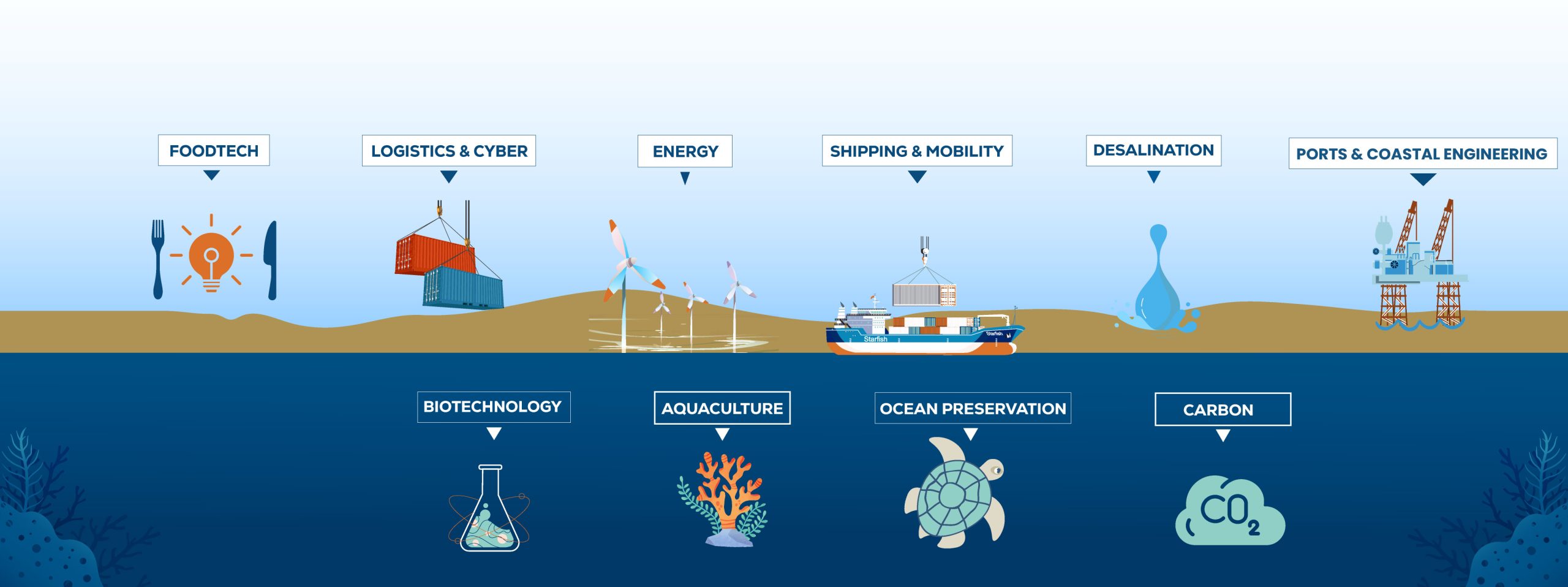
This is a tooltip
1 of 10 This is a tooltip 2 of 103 of 10 4 of 10 This is a tooltip 5 of 10 6 of 10 This is a tooltip 7 of 10 This is a tooltip 8 of 10 9 of 10 This is a tooltip 10 of 10
AQUACULTURE
As the global population increases, the need for quality protein that doesn’t leave an environmental footprint rises. Aquaculture has gone through many changes in the past decade. today, aquaculture has an environmental approach, acknowledges fish welfare, and embraces innovation.
Israel has been involved in aquaculture since the 1930s, when the Jewish Agency sent instructors and researchers to an experimental farm on the coast of Acre. By 1948, 71.4% of the country’s edible fish was produced through aquaculture. Today, Israel’s aquaculture industry is thriving and drives innovation around the globe.

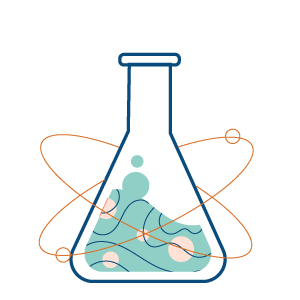
biotechnology
Marine biotechnology, also known as blue biotechnology, is the field of ocean exploration dedicated to developing innovative products, such as pharmaceutical drugs, chemical products, and enzymes, derived from marine organisms.
Israel is home to several academic institutions that excel in marine biotechnology and hosts leading marine biologists who conduct in-depth research in the field.
food tech
The Foodtech sector aims to revolutionize the way we produce and consume food. With the global population projected to reach 9.7 billion by 2050 and an estimated 690 million undernourished, foodtech addresses rising demands while easing environmental strains. It optimizes water usage, develops plant-based seafood, and develops technology to conserve marine life.
Over the past few years, Israel has emerged as a leader in the Foodtech sector, with hundreds of local startups and hundreds of millions in global investments. The result is noticeable: Israel ranks second only to the US in financing alternative protein enterprises.


LOGISTICS & CYBERSECURITY
The surge in global trade and maritime activity has opened up the world to multiple opportunities while presenting specific issues across the shipping industry from logistics and port traffic to cybersecurity risks and environmental concerns.
Israel invests substantial resources in the improvement of regulation and trade infrastructure to help improve economic stability and national security, as well as overcome potential challenges such as limited land trade routes with bordering countries and reliance on foreign trade.
The government works to foster collaboration between defense, private sectors, and academia, setting the country up as a global leader in shipping tech and cybersecurity.
OCEAN PRESERVATION
Ocean preservation encompasses a wide variety of activities and measures aimed at conserving marine life, safeguarding habitats, preventing pollution, and promoting sustainable practices in industries such as fishing.
As a small country with limited rainfall and resources, Israel has long been a pioneer in various fields of ocean and water preservation, including marine protection policies, local and offshore aquaculture systems for fish farming, controlling ocean invasive species, recycling, and more. Israel is one of the world leaders in wastewater treatment, recycling nearly 90% of its wastewater, primarily for agricultural irrigation.

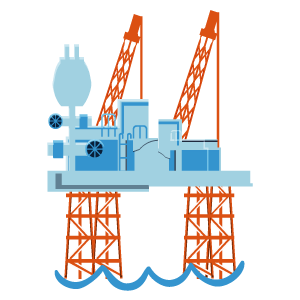
PORTS COASTAL INFRASTRUCTURE
Ports are pivotal hubs in global trade, facilitating the transfer of billions of tons of cargo annually across various transport modes. With about 80% of global goods transported by sea, technology-enabled efficiency is the name of the game. In Israel, ports have the dual responsibilities of driving economic growth while preserving the environment.
Coastlines represent a scarce, yet in-demand resource that is continually being challenged by residential property development and rising sea levels. Israel currently implements sustainable management strategies, including ongoing monitoring and research, to mitigate coastline damage and maximize potential.
SHIPPING & MOBILITY
Shipping and cargo transportation plays a crucial role in the global economy, with over 80% of goods transported worldwide by sea. Despite challenges such as environmental impact and regulatory changes, the industry shows no sign of slowing down. In fact, it’s being driven by increasing global trade, larger vessels, and technological advancements.
Israel is emerging as a hub for shipping innovation with government support and a growing ecosystem of startups offering solutions in green technologies, digitization, and supply chain optimization.
This presents opportunities for growth and technological leadership in key areas such as environmental sustainability and infrastructure development.


ENERGy
Offshore energy is rapidly evolving, driven by technological advancements and increased investment. There’s a significant rise in offshore wind projects, especially in Europe, Asia, and North America, with floating wind turbines opening new areas for wind energy.
Integrating AI and machine learning improves efficiency and reduces costs in offshore installations. Innovations in subsea cabling and energy storage ensure reliable energy transmission, while offshore energy hubs and advanced battery technology address storage challenges.
Hybrid systems combining wind, solar, and marine technologies are emerging, offering diverse renewable energy solutions. With renewables expected to generate nearly 50% of global electricity by 2030, these advancements are steering the offshore energy sector toward a sustainable future.
DESALINATION
By 2050, the demand for viable drinking and farming water is expected to outstrip the supply by 40%. In light of the worsening global water crisis, desalination is becoming more critical. The sector has experienced significant growth, with over 21,000 desalination plants operational globally, notably in Gulf countries like the UAE, Kuwait, Oman, and Saudi Arabia.
Israel pioneered innovative desalination systems and serves as a consultant in the field across the world today.


carbon
Carbon emissions are at an all-time high, which is dangerous for the planet as both the atmosphere and oceans heat up. The solution is transitioning towards sustainable, cleaner energy alternatives while continuing to develop and implement carbon removal technologies. Israel has set mitigating the climate crisis as a high priority and supports companies that seek to solve the world’s climate process.
